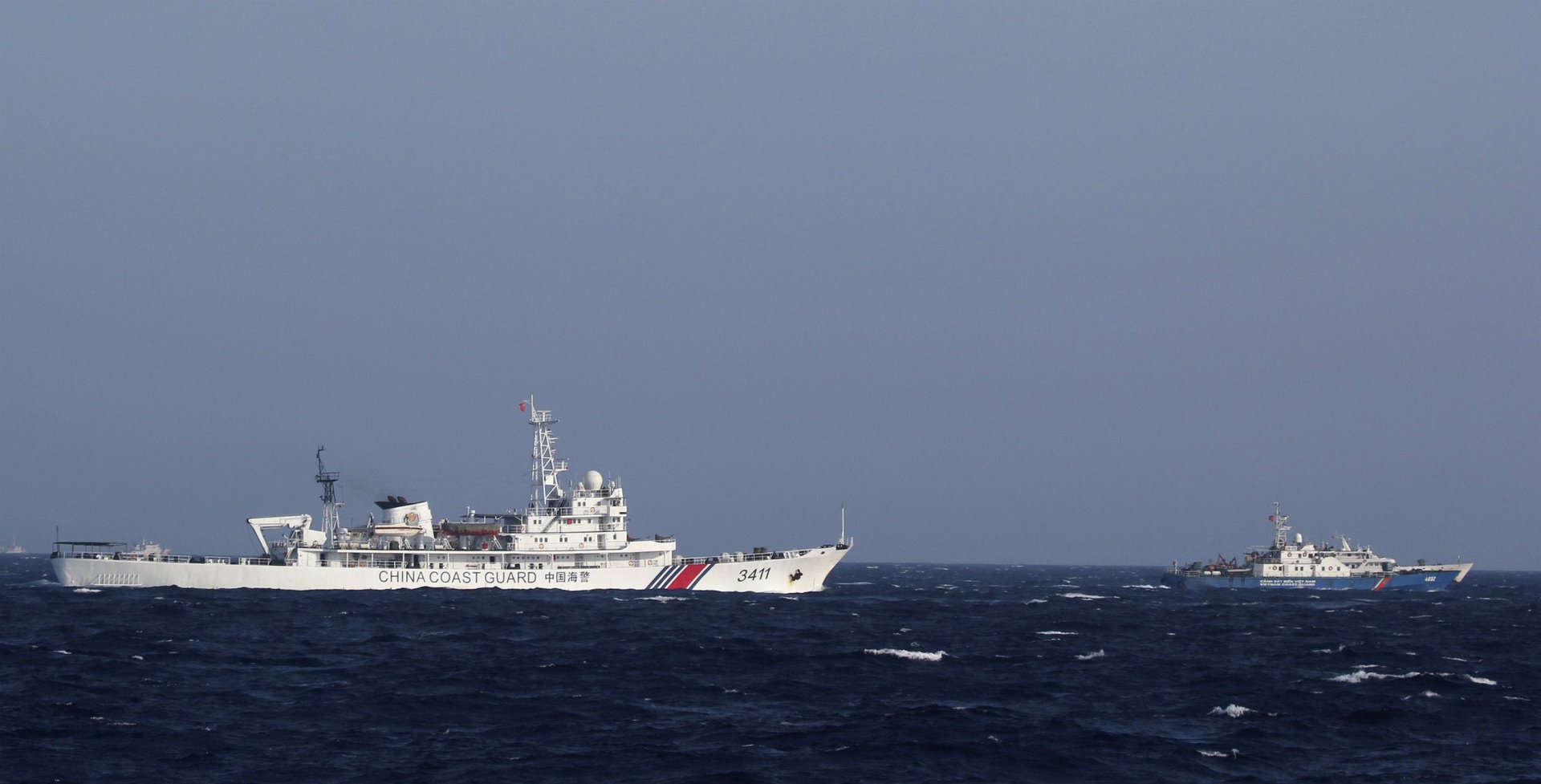Spawning fish are about to make the feud between China and Vietnam more dangerous
The maritime spat between China and Vietnam just claimed its first casualty: A Vietnamese fishing boat is at the bottom of the South China Sea after being struck by a Chinese vessel, according to the Vietnamese government. The incident took place about 20 miles from a controversial Chinese oil rig that has already caused deadly riots—and it might be about to get even worse: China has declared mid-May to August 1 a “no fishing” period in most of the South China Sea and Vietnamese officials have already said they plan to disregard the ban.


The maritime spat between China and Vietnam just claimed its first casualty: A Vietnamese fishing boat is at the bottom of the South China Sea after being struck by a Chinese vessel, according to the Vietnamese government. The incident took place about 20 miles from a controversial Chinese oil rig that has already caused deadly riots—and it might be about to get even worse: China has declared mid-May to August 1 a “no fishing” period in most of the South China Sea and Vietnamese officials have already said they plan to disregard the ban.
The Vietnamese ship was surrounded by about 40 Chinese fishing boats, Vietnam’s Tuoitre News reported, when “suddenly” one Chinese ship crashed into it, resulting in the ship sinking. China’s state news said the boat capsized after “harassing” the Chinese. The 10 crew on board were rescued. China and Vietnam both claim the Paracel Islands, which were the subject of a 1974 naval skirmish. On May 26, China held a press conference to say it was the ”undisputed master” (link in Chinese) of the islands and Vietnam’s claims were not credible.
The fishing ban adds another source of tension. For more than a decade, China has called for a summer ban on fishing in the areas it claims in the South China sea to allow fish to breed. The ban has always been opposed by Vietnam and the Philippines, but following China’s increasingly aggressive actions in the region, Vietnamese officials are openly pledging to defy it this year.
“In Vietnam people have to wear helmets while driving, yet we could not enforce this law in China,” Vietnamese fishing directorate deputy director Nguyen Van Trung said earlier this week, explaining why Vietnam would not respect the ban. “In the same way, the Chinese ban will apply only to Chinese fishing vessels.”
Late last year, China’s Hainan province issued new rules about fishing in the seas that it claims it administers—some 2 million square kilometers inside the “nine dash line” that includes about 80% of the South China Sea. The rules require foreign fishing boats to get permission from China to enter the area and clearly violate the UN’s Convention on the Laws of the Sea, according to The Diplomat.

Vietnam has long-standing ideological ties to China and its economy is deeply dependent on continued good relations, particularly in its manufacturing and tourism industries. But China’s increasingly aggressive activities in the South China Sea have sparked anti-Chinese riots in Vietnam and a new alliance with the Philippines, and prompted Vietnamese politicians to take the unusual step of promising to seek international aid in curbing China.
Vietnam might want to look to its new ally for a face-saving solution to the situation. The Philippines responded to China’s regional fishing ban in 2012 by declaring a ban of its own—a solution that allowed the Philippines to show that it was not obeying China’s commands, but still defused tensions in the region by pulling fishermen out of the disputed waters.
Jennifer Chiu contributed reporting.